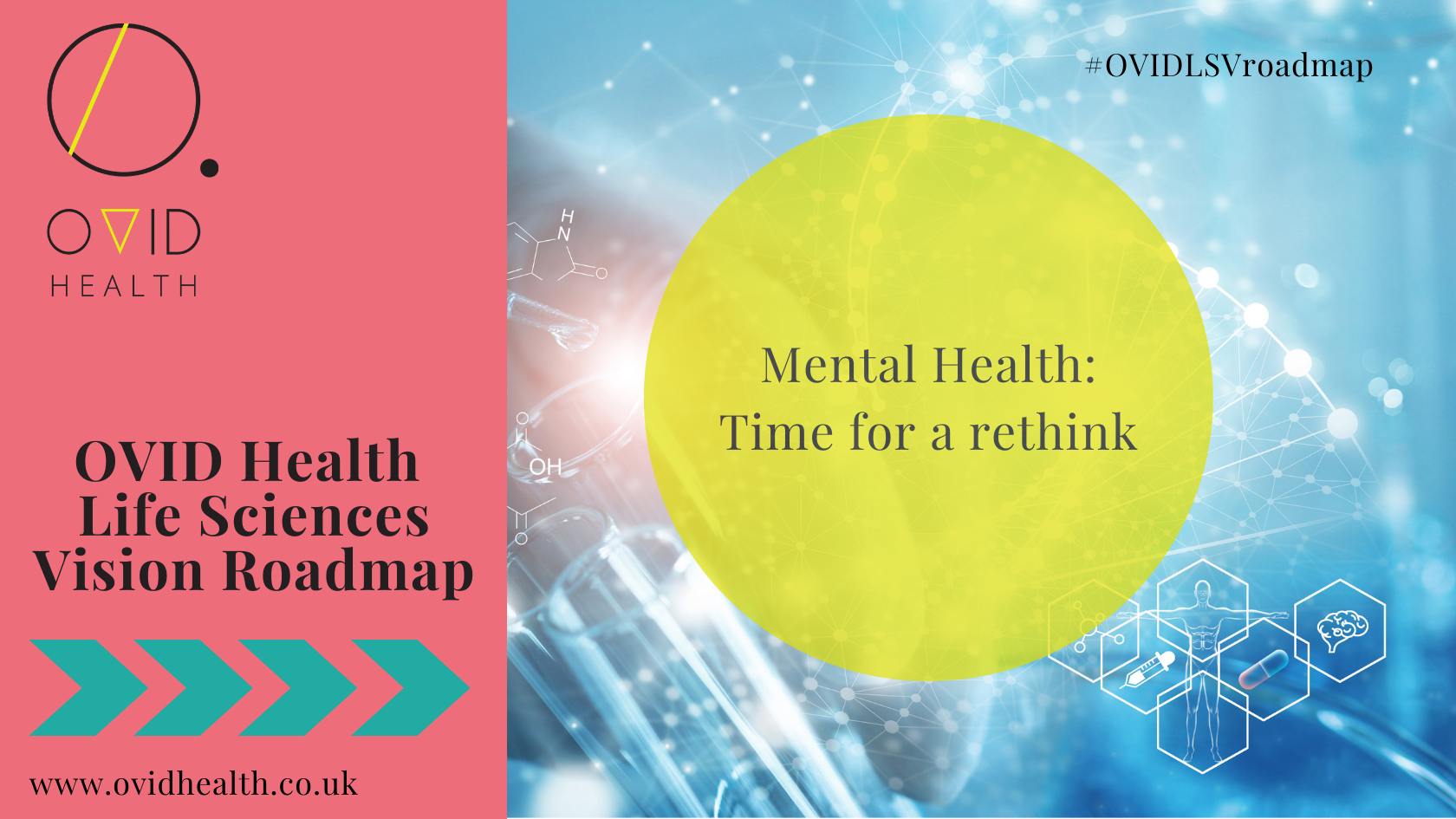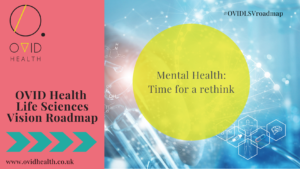
14 Jul Mental Health: Time for a rethink

July 14th was the timetabled release date for the Life Sciences Vision Roadmap – the delivery plan was due to set out funded activity for this spending review cycle to deliver on the Life Sciences Vision’s “great healthcare challenges”. Political circumstances have shelved the policy document but not the challenges it seeks to address. OVID Health Senior Account Director, Tom Doughty, shares his analysis of what the Roadmap needed to contain on mental health.
A new chapter for mental health services
The Life Sciences Vision Roadmap was to due to come just as we are on the cusp of a new Government 10-year national mental health plan. At the same time, a new Mental Health Bill has been drafted to give people more say in their treatment options and repeal some of the outdated aspects of the 1983 Mental Health Act.
There can be no denying the progress made around the world in advancing our understanding and appreciation of mental health.
And with good reason. In the most recent NHS survey of mental health and wellbeing in England, the prevalence of common mental health problems increased by 20% between 1993 and 2014 amongst both men and women. More worryingly, the impact of the COVID-19 pandemic on mental health – which saw depression in adults double – will continue to be felt across many areas of society for years to come.
Recognising this increasing challenge, successive Governments and the NHS have sought to prioritise funding and service transformation to provide better support for mental health. The NHS’ 5-Year Forward View outlined mental health as a priority, and before its evolution, the Long Term Plan renewed the NHS’ commitment to pursue the most ambitious transformation of mental health services ever seen in England. The Long-Term Plan refresh is yet another opportunity to build on this momentum.
But what the launch of these initiatives tells us, surely, is that despite decades of progress, the UK has still struggled to achieve its goal of genuine parity of esteem between mental and physical health. Could the Life Sciences Vision Roadmap hold the answer?
Redefining the problem
The Life Sciences Vision’s ambition for mental health is to address the significant unmet need for new treatments and technologies by deepening the understanding of mental ill-health.
In short, our understanding of the biologic and genomic triggers of mental health diseases has not advanced at the same pace as that of (for example) cancers or rare diseases, making it difficult for pharmaceutical companies to develop new therapies and leading to a shortfall in investment.
The strategy is therefore to refocus mental health research towards individual disabling symptoms that could be amenable to pharmaceutical intervention. This would come with a move away from continuing to only treat the diseases themselves.
But is that enough?
The increasing prominence of mental health in the past decade has coincided with a major restructure of NHS services towards a model based around prevention. Therefore, it is not a huge surprise that innovative treatments have not been the primary focus of mental health policy. But even when treatment is needed, stigma in mental health is pervasive and can affect many aspects of someone’s care.
Approaches to treating conditions such as mental health, or similarly obesity, do not require a binary choice between prevention or cure. We need both. Tackling the stigma around mental health is key to ensuring pharmaceutical interventions are seen as part of the solution. The Life Sciences Vision Roadmap was an opportunity to show that the focus on new research and treatments can be a genuine part of the future of mental health care, alongside a challenge on stigma and a serious prevention programme.
Forward-looking companies in mental health – whether pharmaceutical, MedTech or digital health – have a role to play in actively demonstrating the value of innovation in mental health. They can be the linchpin that pulls all parts of the system together, including vital patient groups. The industry is ready and the life sciences ecosystem is open to true partnership. Whatever form the Life Sciences Vision takes moving forward, it needs to build on this opportunity and provide an exciting picture for the future of mental health care.
To find out more about OVID’s take on the Life Sciences Vision healthcare challenges and how to deliver them, check out our series here.